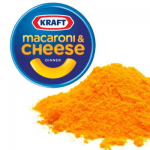
Kefir is a healthy dairy product widely consumed because of its probiotic properties. Since it is already fermented, many people believe it can’t get spoiled. However, like other dairy products, Kefir can go bad.
The shelf-life of the dairy product is not too long. It will only last for a couple of days before it starts showing any signs of spoilage. However, the shelf-life can be extended to a certain extent with proper storage.
If you are also a daily user of Kefir, it is worth learning about its shelf-life, impacts of consuming bad Kefir, storage methods, and spoilage signs.
What is the Shelf-Life of Kefir? How Long Does Kefir Last?
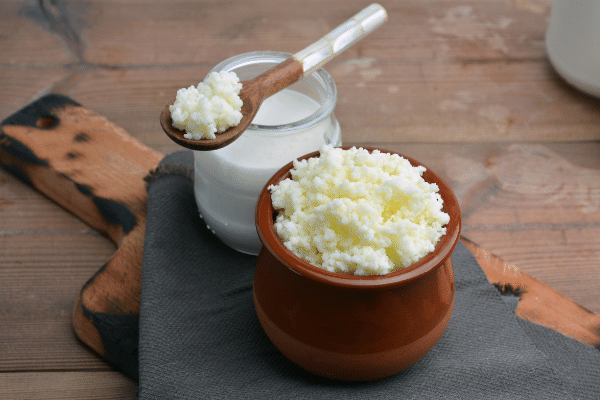
The package of Kefir comes with a best-by date that people commonly use to know how long it can sustain its quality and freshness.
How long does unopened Kefir last?
An unopened Kefir package can last for seven to eight days after the best-by date. After opening, you will experience no change in the quality and freshness. However, the taste may get stronger when you drink it a week after its use-by date.
Homemade Kefir lasts for two to three weeks, provided that it is refrigerated consistently.
How long does Kefir last once opened?
After opening the package, the dairy product tends to last until the use-by date, as per Lifeway Brand. But, if you open the package near to its use-by date, you can’t expect a tasty treat for more than five days.
So, if you open the package of Kefir a couple of days past its use-by date, consume it within 24 hours.
How long does Kefir last in the refrigerator? How long does kefir last in the fridge after opening?
| Product | Fridge |
| Kefir Unopened | Use-By Date Plus One Week |
| Kefir Opened | Use-By Date Plus Five Days |
| Homemade Kefir | Two to Three Weeks |
The chart is just an estimate and the periods are for its best flavor only.
How to Tell If Kefir Has Gone Bad?
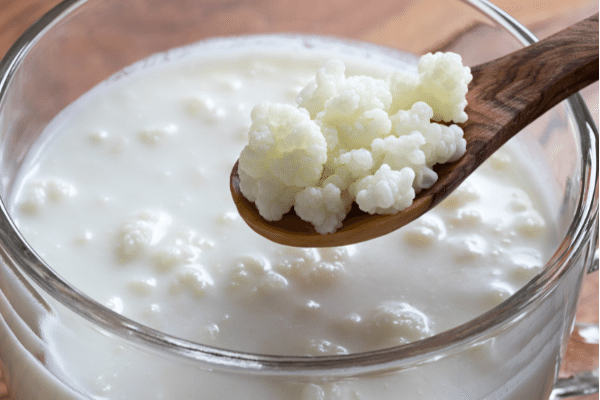
It is really simple to distinguish between bad and good Kefir. The smell, taste, and color change when it goes rancid. But, there are a few important spoilage signs that you must look at in Kefir to know whether it has gone bad or is still edible.
Presence of Mold
The presence of mold on the surface of Kefir is the most common spoilage sign, as per Yummy Kefir. You will see clear fuzzy growth on the surface of Kefir, along with orange and pink spots. It indicates that the Kefir has gone bad.
Signs of Separation
If there are more watery contents along with a bunch of solid chunks, discard it as it has gone bad already. When there is a sign of separation, the texture will look like buttermilk.
Sour Smell
Kefir smells like vinegar and is a bit sour. But if the smell gets off, biting or harsh after opening the package, discard it as it means the Kefir has gone bad.
Sour Taste
Being a fermented dairy product, Kefir gets stronger and high in potency over time, according to Chuckling Goat. You will find that it is too strong for your taste buds. If it is the case, you must discard the Kefir, or it may ruin the flavor of your recipe.
Pro Tips!
- The amount of fizz, texture, and taste varies from batch to batch, and they change based on the season.
- The sour Kefir is not harmful, and you can consume it, but it will no longer be as tasty as fresh Kefir.
Can you drink Kefir after the expiration date? Can expired Kefir make you sick?
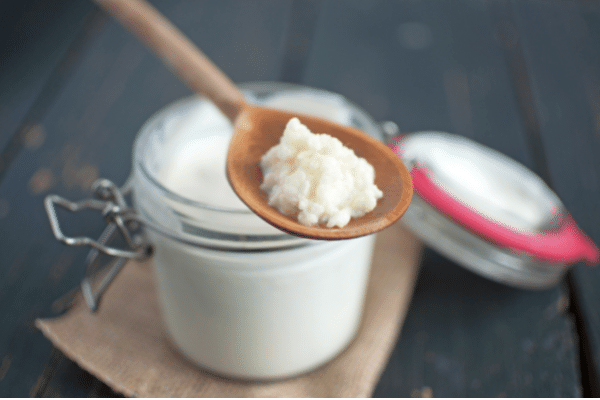
Drinking Kefir a couple of days later its expiry won’t do any harm or make you sick. But, you have to check the state of the dairy product to ensure that it doesn’t make you seriously ill.
The consequences of drinking Kefir after expiry will not be serious. In some cases, people may experience gastrointestinal tract disorders with symptoms like flatulence, diarrhea, gas, bloating, and more. In extreme cases, people may experience food poisoning.
People with good gut health won’t react after drinking the expired Kefir, provided that it is stored properly in a fridge.
If you see the formation of lumps and foams on the surface, it means carbon dioxide starts forming on it and may increase the hydrochloric acid level in the body. Such Kefir is no longer safe for consumption.
Don’t drink Kefir that is overdue for ten days or more as harmful microorganisms start growing and can cause food poisoning.
Can You Freeze Kefir? Refrigerated Vs. Shelf Stable
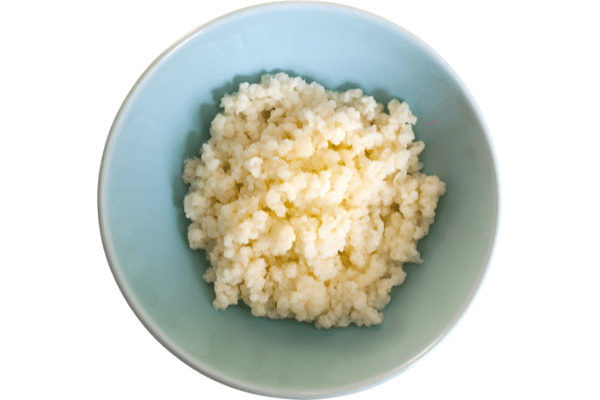
Unlike other dairy products, Kefir is not good for freezing. Like Yoghurt, if you freeze Kefir, the liquid content separates from the solid content when you thaw it. Running it in a blender or stirring thoroughly helps to a certain extent, but it won’t reconstitute like fresh Kefir.
According to Lifeway Kefir, you must try freezing Kefir in an ice cube tray to minimize this effect. Besides, freezing will also ruin the texture of Kefir, and it won’t be fresh as the molecular structure of Kefir will get destabilized.
However, you can extend the shelf-life of Kefir for up to three months by freezing it. As mentioned, you must pour Kefir into an ice cube tray to freeze, and before thawing, you must refrigerate it overnight.
Unfortunately, the creamy consistency of Kefir will disappear once you freeze it, and you won’t enjoy drinking Kefir after thawing. But it can be used for any cooked dish.
Does Kefir Need to be Refrigerated?
Like other dairy products, Kefir belongs to a fridge to keep its freshness and quality longer. Kefir needs a cool environment to keep its quality. The refrigerator is the best place to get the required temperature to stay fresh and good.
The refrigerator keeps Kefir safe and prevents the fermentation process from speeding up. As a result, the shelf life of the Kefir increases. It is because fermentation is reduced under the cool temperature of a refrigerator.
To allow Kefir to sustain its freshness and quality longer, you must place it at the corner of the shelves and avoid storing it in the door. The temperature required to keep its freshness longer is available at the shelves, and there is high-temperature fluctuation at the door, making your Kefir go bad faster.
You can extend the shelf life of Kefir for up to two to three weeks if you store it in a fridge.
Can you place Kefir at room temperature?
Like other dairy products, Kefir is not shelf-stable, and hence it needs consistent refrigeration. When stored at room temperature, kefir can go bad easily in one to two days. The short lifespan of Kefir is because of the fermentation process that starts when the temperature increases to 68-78 degrees Fahrenheit.
Leaving your Kefir outside the refrigerator will shorten its shelf life, and it will start getting harsh and sour within 24-48 hours. So, it is not a good idea to store Kefir at room temperature outside the refrigerator, especially if you want to keep its freshness longer.
How to Store Kefir?
Like other dairy products, Kefir is required to be stored in a refrigerator, both unopened and opened. But, there are certain steps that you have to follow when storing your Kefir to sustain its quality, freshness, and creamy taste longer.
Store it at Shelves and Avoid Storing in the Fridge Door
As mentioned earlier, the refrigerator is the best place to store your Kefir. But there are certain things to remember before storing it in a fridge. There is a high-temperature fluctuation in the doors of a fridge, and it can be a reason for Kefir spoilage.
So, it is suggested that you store the Kefir at the corner of the top-shelve where the temperature is stable and keeps it fresh and good.
Store it Away from Sources of Heat
Kefir must be stored away from the heat sources, including sunlight. Kefir that is placed in a hot and humid environment ferments quickly. It will make the Kefir go bad soon.
So, it is suggested that you place the Kefir in places away from sunlight and other heat sources. You must not store it close to an oven or at the back of the refrigerator.
Seal Tightly
Kefir usually comes in a sealed plastic container or bottle. After opening the seal, the dairy product is exposed to air and oxygen, speeding up the oxidative process.
So, you must keep the bottle sealed and tight when storing it to prevent Kefir from coming in contact with the air. If your Kefir comes in a plastic container, transfer it into a jar and seal it tightly before storing.
What are the Alternatives to Kefir if it has gone bad?
If your bottle of Kefir is showing signs of spoilage, replace it with the following substitutes:
- Milk
- Yogurt
- Buttermilk
- Sour cream
- Brine
Frequently Asked Questions
Does Kefir Expire?
Kefir is a dairy product that sustains its quality for two to three weeks or until its label’s use-by date. After its best-by date, the taste will get sour and strong, and it takes around five days for the taste to change, depending upon your taste preferences. So, it won’t be exaggerated to state that Kefir can go bad and taste sour after the best-by date.
How Long does Kefir Last in the Fridge After Opening?
The homemade Kefir lasts for two to three weeks if refrigerated consistently. However, the store-bought Kefir will last for three to five days or until its best-by date after opening. But, it needs continuous refrigeration to keep its quality.
Does Homemade Kefir Need Refrigeration?
Yes, whether it is store-bought or homemade, refrigeration is the only way to keep its quality and freshness longer. The homemade Kefir won’t last more than 48 hours at room temperature. So, to keep the homemade Kefir safe for up to three weeks, refrigeration is necessary.
Does Kefir taste like buttermilk?
Kefir has a similar consistency and fat content as buttermilk. Along with that, it contains a similar fermentation process that might give it the same taste as that of buttermilk. This is why you can use them interchangeably.
Why does my Kefir taste like sour milk?
Do not panic if your Kefir tastes like sour milk. It is nothing but an indication that your Kefir has fermented properly. It is 100% safe to consume.
Does Kefir make you poop?
Several studies have proven that Kefir aids people with constipation. It softens the stools and improves bowel movements.
The Bottom Line
Kefir is a dairy product, and it varies in fizz level, taste, consistency, and flavors. The difference in flavors doesn’t mean that it has gone rancid. You have to look for other spoilage signs before using it.
If everything seems okay except its sour taste, it is not harmful, and you can use it. As mentioned, you must always store Kefir in the refrigerator. Keep the lid secured and tight.

